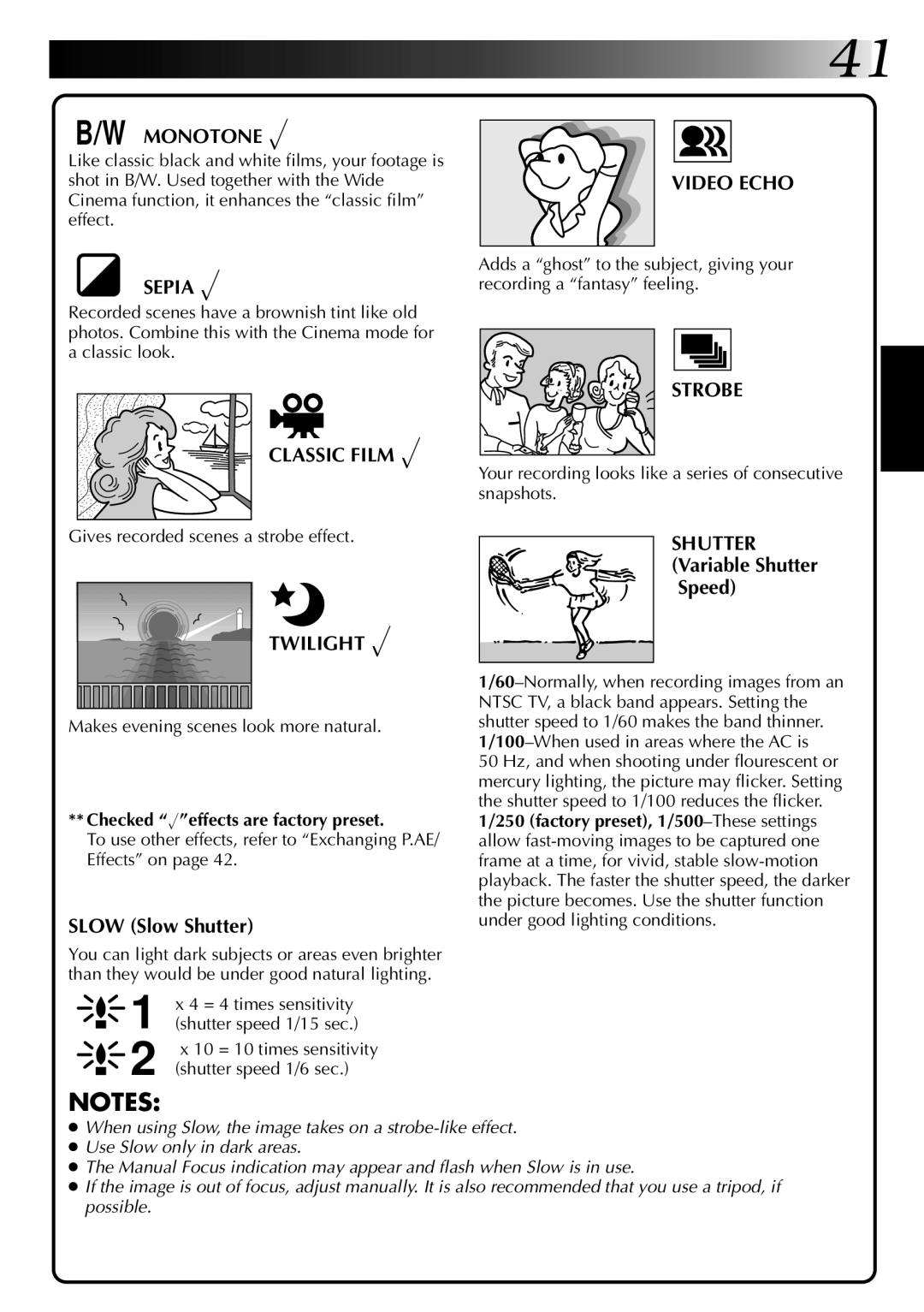
![]()
![]()
![]()
![]()
![]()
![]()
![]()
![]()
![]()
![]() 41
41
B/W MONOTONE √
Like classic black and white films, your footage is shot in B/W. Used together with the Wide Cinema function, it enhances the “classic film” effect.
VIDEO ECHO
SEPIA √
Recorded scenes have a brownish tint like old photos. Combine this with the Cinema mode for a classic look.
CLASSIC FILM √
Adds a “ghost” to the subject, giving your recording a “fantasy” feeling.
STROBE
Your recording looks like a series of consecutive snapshots.
Gives recorded scenes a strobe effect.
TWILIGHT √
Makes evening scenes look more natural.
**Checked “√”effects are factory preset.
To use other effects, refer to “Exchanging P.AE/ Effects” on page 42.
SLOW (Slow Shutter)
You can light dark subjects or areas even brighter than they would be under good natural lighting.
1 | x 4 = 4 times sensitivity |
(shutter speed 1/15 sec.) | |
2 | x 10 = 10 times sensitivity |
(shutter speed 1/6 sec.) |
NOTES:
SHUTTER (Variable Shutter (Speed)
50 Hz, and when shooting under flourescent or mercury lighting, the picture may flicker. Setting the shutter speed to 1/100 reduces the flicker.
1/250 (factory preset),
●When using Slow, the image takes on a
●Use Slow only in dark areas.
●The Manual Focus indication may appear and flash when Slow is in use.
●If the image is out of focus, adjust manually. It is also recommended that you use a tripod, if possible.
